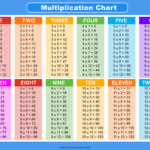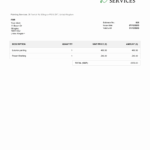A baseball scorebook in a format designed for convenient printing allows for the manual recording of game events. This document serves as a structured template, typically featuring columns and rows to track at-bats, fielding plays, and pitching performances for each player and inning. The user can print multiple copies to use for various games or different team members.
Maintaining a detailed record of baseball games using these printed documents offers numerous advantages. It provides a historical archive of game statistics, valuable for player development analysis, strategic planning, and scouting. Traditional scorekeeping allows for a deeper understanding of the game’s nuances and fosters a connection with the sport’s history and methodology. Furthermore, this method avoids reliance on electronic devices, making it a reliable backup and promoting active engagement with the game.
The availability of downloadable templates offers options for various scorekeeping preferences and experience levels. From simple, streamlined designs for beginners to more comprehensive layouts that incorporate advanced statistical tracking, these resources cater to a wide audience. The following sections will explore the diverse template options, examine best practices for effective scorekeeping, and consider the digital alternatives available to the traditional method.









